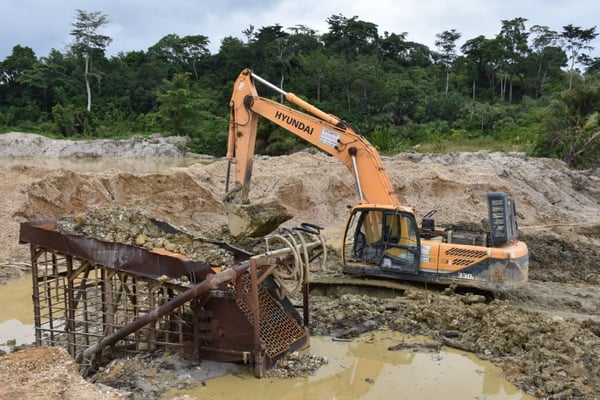The Ghanaian government has embarked on a significant initiative to regulate the import and usage of excavators in the country. This move stems from concerns about the responsible use of such equipment in the mining sector, as well as the alarmingly high import value of excavators, which reached GHc6.2 billion in 2024, making it the third-highest import item. The core of this initiative involves a comprehensive tracking system implemented through a collaboration between the Minerals Commission, the Driver and Vehicle Licensing Authority (DVLA), and the Customs Division of the Ghana Revenue Authority (GRA). This system aims to monitor the movement and usage of excavators to curb illegal mining activities and ensure responsible environmental practices. Since its implementation on May 1, 2025, approximately 150 excavators have been successfully registered and integrated into the tracking system.
The registration process involves several key steps. Upon entry into Ghanaian ports, new excavators are registered by the DVLA and Customs. This process includes the issuance of import permits and the assignment of unique identification number plates. These number plates, specifically designed for excavators, are green on a white background, distinguishing them from regular vehicle number plates. Following registration and port clearance, the Minerals Commission installs tamper-proof GPS trackers on each excavator. These trackers are linked to a control room at the Commission, which receives alerts if any tampering attempts are made. This real-time monitoring capability is crucial for deterring illegal activities and ensuring that excavators are used responsibly.
To streamline the registration and import permit issuance process, the DVLA and Customs have established a dedicated 24-hour Service Operating Centre at the Tema Port. This centralized location facilitates efficient processing and reduces delays for importers. Furthermore, a special clearance code is being developed within the Customs Management System to track import permits more effectively. This added layer of control will help authorities verify the legitimacy of imported excavators and prevent the entry of unregistered equipment. The government’s multifaceted approach demonstrates a commitment to bringing transparency and accountability to the mining sector, promoting sustainable practices, and curbing illegal activities.
The initiative to register and track excavators carries significant implications for the mining sector in Ghana. By closely monitoring the location and usage of these machines, the government aims to minimize environmental damage associated with illegal mining. The tamper-proof GPS trackers act as a deterrent against unauthorized operations, helping to protect sensitive ecosystems and water bodies often affected by illegal mining activities. Moreover, the registration process provides valuable data on the number and types of excavators operating in the country, facilitating better planning and management of mining operations. This data can also be used to identify potential areas of illegal activity and direct enforcement efforts more effectively.
Beyond environmental protection, the excavator registration initiative also has economic benefits. By formalizing the import and usage of excavators, the government can improve revenue collection through import duties and other taxes. This increased revenue can be invested in developing the mining sector and supporting other essential government programs. Furthermore, the initiative contributes to a more stable and regulated mining environment, attracting responsible investors and promoting sustainable economic growth. By curbing illegal mining, the government safeguards legitimate mining operations and ensures a level playing field for all stakeholders.
In conclusion, the Ghanaian government’s move to register and track excavators represents a significant step towards responsible mining practices and environmental protection. The collaborative efforts of the Minerals Commission, DVLA, and Customs, along with the implementation of advanced tracking technology, demonstrate a commitment to transparency and accountability in the mining sector. This initiative not only addresses the immediate concerns of illegal mining but also lays the foundation for a more sustainable and regulated mining industry, contributing to both environmental and economic well-being. The ongoing development of the clearance code within the Customs Management System further strengthens the framework, ensuring that all imported excavators are properly documented and accounted for. This comprehensive approach is poised to bring lasting positive change to the mining landscape of Ghana.


